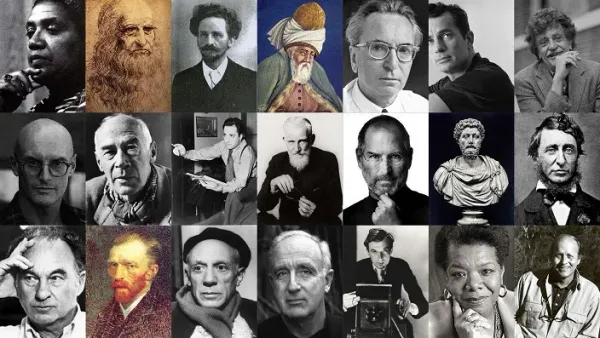I recently chatted with one of Medium's curators/nominators regarding their boost program. This was a conversation about one of the pieces I reposted on Medium. I shared the article and let the nominator judge whether it deserved a boost - reaching out to nominators seems to be a common practice on the platform.
The answer was plain and harsh: "This wouldn't get boosted." And it turned out that the reason was not the topic or even style, but the grammar. Of course, not the basic grammar, but the perfect grammar of subtle things, like a perfect flow of sentences with a few commas or dots here and there to shorten the sentences.
When I read this, I scratched my head and thought, "It's a little too much for what it (boost) does - who even cares?"
Generally, it was all about the things that non-native English speakers like me - I'm Polish, are rather unable to notice. As the nominator wrote when he learned the fact about me: "I only speak one language. I couldn't imagine trying to get boosted if this was my second language."
I wasn't mad, but rather fascinated, after all, it's just one article, perhaps unfortunate, and I respect the nominator - he's good at both writing and editing. And he was honest with me. But it's the platform that's setting strange standards as the writing pie gets smaller and smaller - writing is dying for video content.
Strange and unnecessary, because English is a global language, used mainly by foreigners, who outnumber native speakers by more than 3 to 1. Foreigners care primarily about two things - understanding the language and expressing themselves in the language. They don't care about perfection, but about communication.
Besides, perfection in English is rare also among native speakers. Therefore, in reality, hardly anyone cares about a perfect flow of sentences - as long as the article is free from basic grammatical issues and delivers the point, it's fine. Whether something is perfect or not is rarely even noticed.
But the problem with these large writing platforms doesn't end with language. No, it escalates much further. There are many more strange and unnecessary rules on such platforms, e.g. optimal sentence length or general formatting.
Some of these rules are good SEO practices, but most of them are simply ways to organize the vast amount of content they receive. And for some reason, they can't develop an algorithm for it. As a result, their writers stress not to put a comma or two in the wrong place because they may lose the chance for wider distribution. No wonder that many writers feel frustrated and quit.
Meanwhile, the best writers that people actually want to read are the ones who break the rules. Like Genius Turner, who often uses multiple one-sentence paragraphs in his articles to build a beautiful narrative. And I always scroll through the lines with fascination until the very end.
The problem is that the results don't change anything. If an article lands too far from their definition of perfection, it won't be widely distributed even if readers see no problems and like reading it. Other platforms, such as YouTube, do the opposite and provide people with the content they want – even if it is low-quality content. Wow, this is class.
Anyway, if I've learned anything important about writing after publishing and editing hundreds of articles, it's this: perfect, ideally structured writing is boring. This is especially important now when we can all be perfect using AI models. But people want to read people, not AI models. And people will never be perfect, which is their beauty.
Therefore we don't want to follow such rules in the publication - we want to spread ideas and curiosity, not snobbism and perfectionism. There are enough intelligent and perfect, but sad and bitter, people in the writing community who don't understand that they are the only ones who care about the strict rules.
In fact, most readers don't read articles but scroll through them in a few seconds to get the information they need and close them. That's the current reality, and anyone who uses tools like GA4 on their website knows that behavior perfectly well.
Writers should understand that they don't compete with other great writers because writing is quite niche these days - writing is dying for visual content. Written content competes for attention with TikToks, YouTube shorts, or memes. And when we praise writing for being so strict and boring, it only accelerates the process of decline.
All of this creates a dynamic of an increasingly smaller pie in the writing community, with writers fighting for it, raising their standards of perfection, striving to be better than other writers, while no one on the outside is even watching this miserable struggle. Writers and the major writing platforms operate to standards that no one even expects from them.
Even the nominator I mentioned earlier, who is one of the best writers, admitted that recently he has also had difficulty keeping up with the standards of wider distribution of his articles. Flustration is even at the top.
If written content is to survive, writers must learn how to play with words, not how to be perfect with words, as George Bernard Shaw once said:
“The best way to get your point across is to entertain.”
And whether readers are entertained by single-sentence paragraphs, overlong sentences that ideally could be broken into three separate ones or emoticons in articles, it's good for the entire writing community.
As for me, I'd be more proud if this publication was entertaining enough to compete with cat videos on the internet while still conveying some value between the lines than if it impressed comma-obsessed intellectuals with its perfection.









